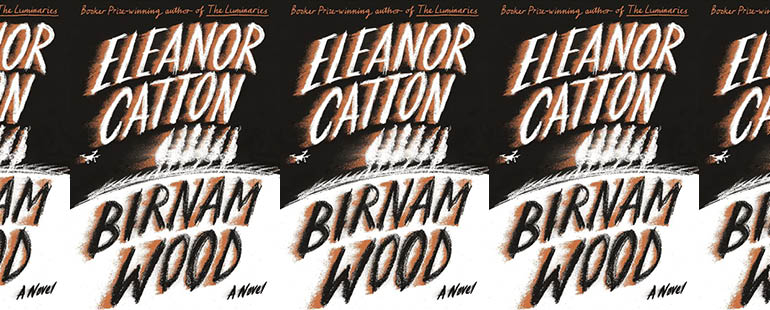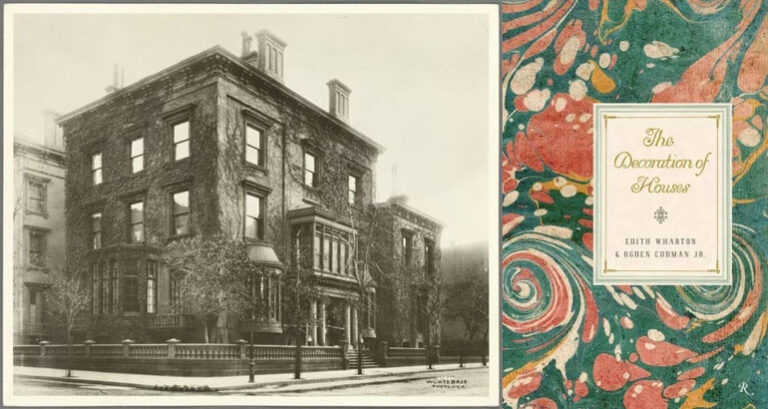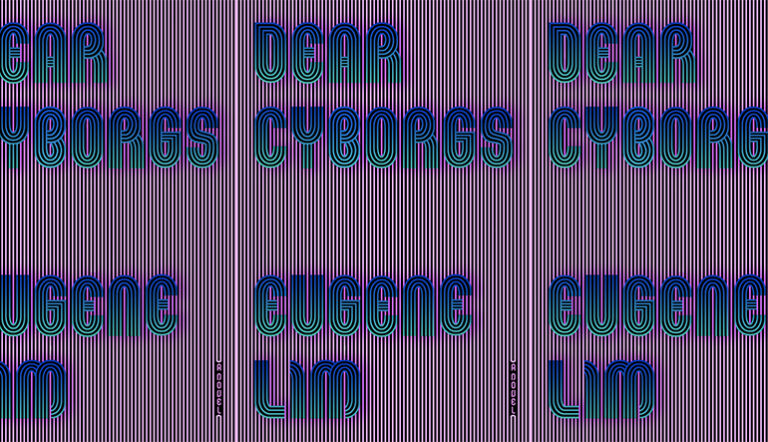Disaster Capitalism in Birnam Wood

Birnam Wood
Eleanor Catton
Farrar, Straus and Giroux | March 7, 2023
Birnam Wood, the third novel by New Zealand author Eleanor Catton, is a stark and powerful indictment of the innumerable ways that we are undone, individually and collectively, by ambition. Like her previous work, The Luminaries, for which she received the 2013 Booker Prize, it is an intricately designed and thoroughly contrived tangle of characters, plots, and subplots. Catton navigates us through this labyrinth with deftly shifting points of view and compelling arcs of exposition—all the while preserving the tale’s jeremiadic invective and unflinching critique.
Set in New Zealand’s South Island, the novel opens with a scene of destruction—the aftermath of an earthquake that has blocked the highway, isolated the town of Thorndike, and resulted in multiple fatalities. Rather than inspiring relief efforts, reconstruction projects, or, at the very least, sympathetic solidarity, however, this devastation sparks the enterprising fire of disaster capitalism—beginning with Mira Bunting, the twenty-nine-year-old founder of an activist gardening collective named Birnam Wood. For Mira, a “self-mythologizing rebel” with expansionist dreams, the rubble-covered road, the out-of-business storefronts, even her momentary realization viewing online satellite photos that “the motorists pictured might now be dead,” all point to one thing: opportunity.
When she makes the five-hour trip to Thorndike to visit the property she’s been covertly surveilling for months, owned by a soon-to-be-knighted head of a pest control empire, Owen Darvish, who’s recently relocated with his wife to Wellington, she discovers, quite dramatically, that she’s not alone. Enter Robert Lemoire, an ultra-wealthy American CEO and venture capitalist whose modest goal is to become “the richest person who had ever lived.” Lemoire, we quickly learn, is far more skilled in the arts of surveillance and camouflage than Mira and has put these talents in service of a mind-bogglingly lucrative prize—an illegal mining operation in the adjacent Korowai National Park. Deftly cosplaying the role of “doomsday-prepping, New Zealand-citizenship-seeking, investment-opportunity-dangling billionaire,” Lemoire has purchased Darvish’s land, “one hundred and fifty-three good hectares,” under the guise of building an elaborate underground security bunker—a story that, once he’s offered double the original asking price, Owen is little inclined to investigate in any detail.
When Lemoire presents Mira with an opportunity to, in her words, “be really, really big”—along with a hundred thousand dollars—she’s instantly blinded to the way that this isn’t (and can’t possibly be) a sincere offer. She brings his proposal to the next meeting of the Birnam Wood collective, armed with a newfound conviction that violating one’s principles and living by them are basically the same thing, and convinces an organizational majority to endorse the arrangement. It’s a sobering commentary on the cheapness of contemporary idealism—and Birnam Wood’s complicity with Lemoire’s sociopathic megalomania is arguably even more irredeemable than, say, Darvish’s. As café owner Rick Blaine tells Ugarte, the petty thief, in Casablanca: “I don’t mind a parasite. I object to a cut-rate one.”
The primary voice of objection comes from Tony Gallo, a thin-skinned co-founder of Birnam Wood, who has recently returned to New Zealand after years of teaching English in Mexico City and backpacking through Central and South America—experiences enabled by inherited wealth that he wears as badges of ideological sincerity and moral authenticity. Following a cringeworthy recitation of dude-bro political philosophy, “identity politics” and “cancel culture” paranoia, and adversarial mansplaining for his own entertainment, Tony sets off alone to uncover the truth about Thorndike, Korowai, and Lemoire. Sounding a bit like A Confederacy of Dunces’s Ignatius J. Reilly at times, he insists that his dream of writing “a searing indictment of the super-rich” is “in the public interest…purely in the public interest,” but his solitary pursuit betrays his true self-aggrandizing desires. When he begins to see what Lemoire wants to conceal, his fantasy consumes him, his face occupied by one smile after another as he imagines himself becoming the story, being interviewed, winning awards, his byline splashed on front pages in Munich, London, New York. Later, when he sees the full horror of what is happening there, his response is one of boundless “euphoria”: “I am going to be so fucking famous,” he says aloud to only himself. In that moment we realize the full paradox and bad faith of Tony’s façade. Despite his contrary rhetoric, he needs Lemoire—and all the Lemoires of the world—to give his life meaning. Lacking the ability to uncouple his place in the world from the politics of negative critique, his surface resistance collapses into the toil and trouble of unnoticeable collusion.
At the end of Shakespeare’s “Scottish play”—to which Robert Lemoire should have paid more attention in school—following the death of his wife and shortly before Birnam Wood does, in fact, come to Dunsinane, Macbeth delivers his final soliloquy, the famous “Tomorrow, and tomorrow, and tomorrow.” It is a speech of great power—and one of absolute despair. Macbeth’s realization is not simply about the briefness and finitude of life, the fast-approaching future darkness; rather, it reveals the always-already meaninglessness, even the absurdity, of the past as well. Life, with all its intentions and aspirations, its strutting and fretting, refuses to signify. Instead, at the end, it’s merely gone, heard no more.
Birnam Wood’s conclusion, Shakespearian in its sound and fury, is similarly jarring in both extremity and absolutism. Catton’s stylish prose notwithstanding, the novel is relentlessly bleak. The settler colonial obsession with land has become not only the bloodstain we can’t wash away but also, mixing tragedies, the poisoned cup from which we drink. No generation is immune from the novel’s ire. Idealistic millennials are frauds, Gen X-ers are technocratic looters, Boomers are oblivious resource hoarders. Yet it’s not just the premise that everyone is fatally flawed that generates such intense and oppressive pessimism; rather, it’s that everyone in the novel is so deeply unlikable as well. Perhaps this is what Catton wants to say—that in the cauldron of late capitalism, we have all become, despite ourselves, terrible people—but if there is a remedy or an alternative to this condition, we will have to locate it outside the pages of Birnam Wood itself.


